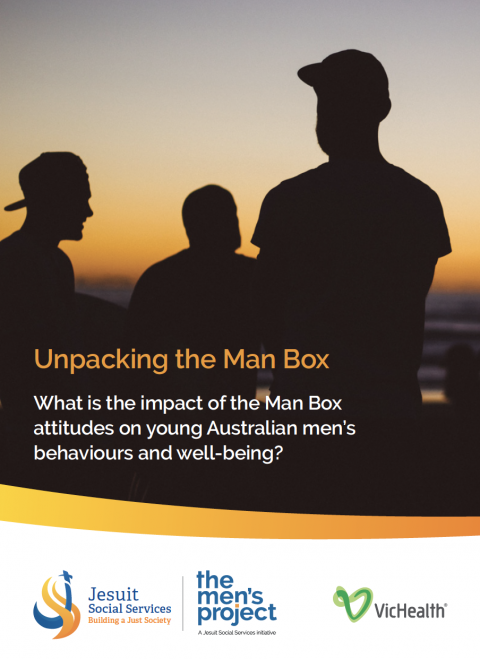
Unpacking the Man Box is based on a survey of 1,000 young Australian men aged 18 to 30. The report builds on the findings of The Men’s Project’s 2018 report The Man Box.
The initial Man Box report found that young Australian men who believe in outdated masculine stereotypes were themselves at higher risk of using violence, online bullying and sexual harassment, engaging in risky drinking and reporting poorer levels of mental health.
The new study finds young Australian men’s belief in rigid masculine stereotypes has a stronger impact on whether they will use violence, sexually harass women, or experience mental ill-health themselves, than other factors including their education levels, where they live or their cultural heritage.
Unpacking the Man Box finds men’s adherence to outdated attitudes to gender is over:
- 25 times more accurate than a range of demographic variables in predicting the use of physical violence, sexual harassment, verbal bullying and cyber bullying
- 22 times more accurate in predicting the experience of physical violence, verbal bullying and cyber bullying
- 11 times more accurate than demographics at predicting very risky drinking; and
- 10 times more accurate than demographics at predicting negative feelings and emotions
The report includes a range of recommendations to support young men to break free of the man box, live healthy lives and be their best selves.
Unpacking the Man Box is produced by Jesuit Social Services’ The Men’s Project and Dr Michael Flood, Associate Professor at Queensland University of Technology, with funding from VicHealth.
Download the full report: Unpacking the Man Box: What is the impact of the Man Box attitudes on young Australian men’s behaviours and wellbeing?
- Fact sheet: What is the Man Box?
- Fact sheet: Impact of Man Box attitudes
- Fact sheet: Impact of the Man Box sub-pillars
- Fact Sheet: Recommendations
Citation: The Men’s Project, & Flood, M. (2020). Unpacking the Man Box: What is the impact of the Man Box attitudes on young Australian men’s behaviours and well-being? Melbourne: Jesuit Social Services.
Note: Also see this material on "Unpacking and reconstructing masculine norms in Australia", that reports on both this work and other related work by VicHealth and Common Cause, and its list of further reading and resources.
Further resources
- The Man Box: A study on being a young man in Australia (2018)
- Men and the Man Box – A commentary (Flood, 2018), pp. 46-53 of the report The Man Box: A study on being a young man in Australia
- Conversation piece on the 2018 report
- Conversation piece on the 2020 report
- A short piece by Matt Tyler on the 'Man Box' rules and COVID-19: Does COVID-19 force us to re-think the ‘Man Box' rules
- Flood, M. (2020). Men, masculine norms, and gender-transformative change. In The Men’s Project and M. Flood, Unpacking the Man Box: What is the impact of the Man Box attitudes on young Australian men’s behaviours and well-being? (pp. 38-48). Melbourne: Jesuit Social Services.
- Flood, M. (2024). Norms of manhood among young men in Australia. In The Men’s Project and M. Flood, The Man Box 2024: Re-examining what it means to be a man in Australia. Melbourne: Jesuit Social Services (pp. 109-127).